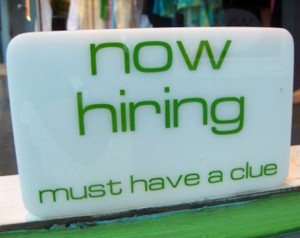
Quick Tips on Building an Employee Referral Program
Good news: You already have your most valuable recruiting tool. Or actually, “tools,” for that matter.
We’ve said it before. In case you need a refresher: Your employees are not only great because they’re the vessel to your organization’s goals, but because these team members most likely have an impressive network that can be harmoniously merged with yours.
Cue the employee referral program, of course.
















